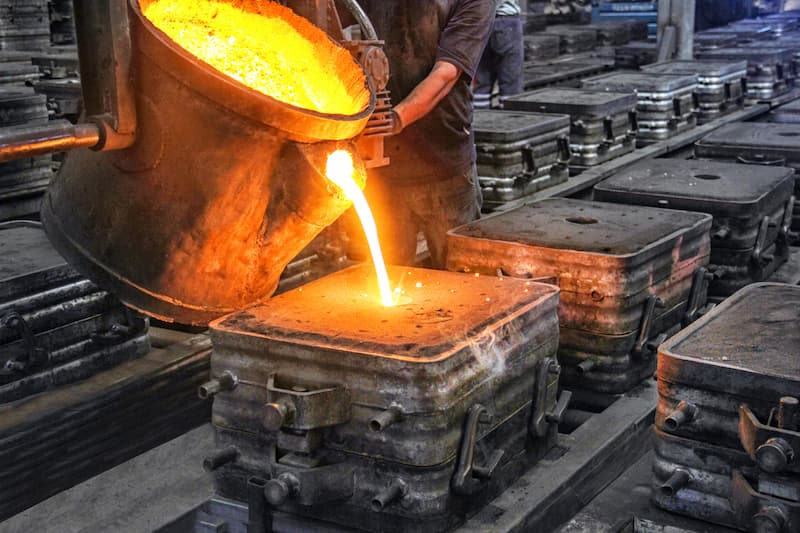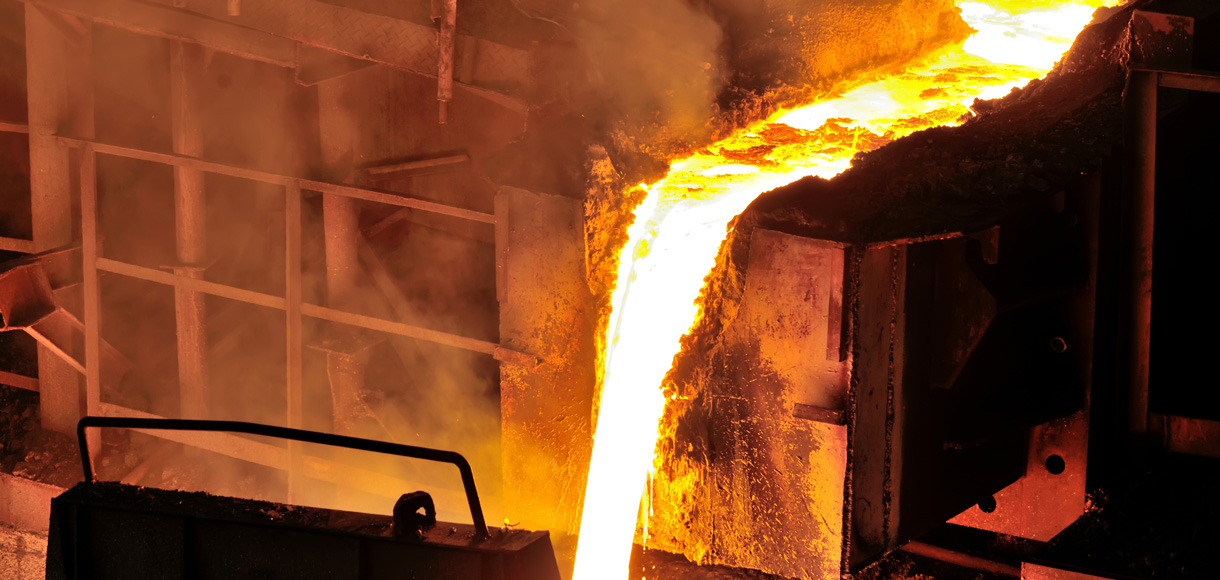Discover the Diverse Solutions Provided by Metal Factories in Todays Industry
Metal factories play an essential duty in modern-day production by offering a selection of services tailored to fulfill industrial demands. They make use of techniques like sand spreading and accuracy machining to develop complicated components. Customized alloy advancement better improves item performance. Nevertheless, quality control and sustainability are progressively becoming focal points in the market. Understanding these varied services exposes the substantial effect shops have on manufacturing effectiveness and environmental obligation. What else might be affecting their evolution?
Metal Spreading Techniques: A Summary
Steel casting techniques embody a mix of creativity and design, transforming liquified metal right into specific forms and kinds. These methods have actually advanced over centuries, adjusting to technical developments and the varied needs of various markets. Amongst one of the most common methods are sand casting, which utilizes sand molds; financial investment spreading, known for its intricate designs; and pass away casting, which employs high pressure for rapid production.
Each technique offers unique advantages, such as price effectiveness, accuracy, and the capability to work with different metal types. Sand casting is specifically preferred for its versatility and ease of usage, whereas financial investment spreading excels in generating comprehensive components. Die casting, on the various other hand, is perfect for high-volume manufacturing, making sure harmony and fast turnaround. Jointly, these techniques play an essential role in developing components for automobile, aerospace, and machinery sectors, showcasing the elaborate relationship in between design and capability in metalworking.

Precision Machining Services
Precision machining solutions supply high precision and uniformity in the construction of complicated elements throughout different industries - Aluminum Foundry. These solutions are vital for generating parts that call for complex layouts and limited tolerances, guaranteeing that they fulfill rigid quality requirements. Advanced machining techniques, consisting of CNC milling, turning, and grinding, enable metal foundries to produce parts with extraordinary information and coating
Utilizing state-of-the-art machinery, precision machining can deal with a large range of products, including metals, compounds, and plastics. This flexibility allows sectors such as aerospace, automobile, and clinical to take advantage of tailored options that improve product efficiency and dependability.

Custom-made Alloy Development
Personalized alloy advancement plays an important role in fulfilling the particular demands of different industrial applications. Steel shops participate in producing tailored alloys that accommodate unique performance standards, such as toughness, deterioration resistance, and thermal conductivity. By making use of advanced metallurgical strategies and simulations, these shops can create alloys that boost the overall functionality of products throughout diverse sectors, including aerospace, automobile, and electronics.
Cooperation between shops and customers is substantial in this procedure. Designers and metallurgists work with each other to recognize desired residential properties, enabling specific adjustments in make-up and processing methods. This bespoke technique not only optimizes product performance however likewise contributes to cost efficiency by lessening waste and optimizing resource usage.
In the affordable landscape of modern manufacturing, personalized alloy growth is an important solution that empowers businesses to innovate and preserve an one-upmanship while attending to certain functional obstacles efficiently.
Quality Control and Screening Procedures
Guaranteeing the highest possible standards of quality assurance and testing treatments is crucial for steel factories to supply trustworthy items. These treatments usually include a range of approaches made to examine the honesty and performance of steel castings. Factories employ numerous screening methods, including aesthetic examinations, mechanical residential property examinations, and non-destructive testing methods such as radiographic and ultrasonic evaluations.
Product structure is rigorously evaluated making use of spectrometric approaches to validate adherence to defined alloy criteria. Furthermore, thermal analysis might be conducted to keep an eye on solidification patterns and anticipate mechanical residential or commercial properties.
Documentation of each testing phase is important, as it provides traceability and guarantee that the products satisfy industry guidelines and customer expectations. By applying stringent high quality control procedures, steel factories not just improve product integrity however additionally foster depend on with clients, preserving an affordable side in the industry.
Sustainability Practices in Metal Foundries
As markets progressively focus on ecological responsibility, steel factories are embracing sustainability methods that reduce their environmental footprint. Lots of shops are executing closed-loop systems to reuse materials, reducing waste and saving resources. This method not only lowers the demand for basic materials however also reduces power usage during production.
Some shops are investing in energy-efficient innovations, such as electric furnaces and progressed cooling systems, which greatly decrease greenhouse gas discharges. Making use of environmentally friendly spreading materials and additives even more enhances sustainability by reducing damaging ecological effects.
Water conservation is an additional vital focus, with shops using recirculation systems to limit water use. In addition, waste monitoring strategies, consisting of the recycling of sand and steel scrap, are becoming basic technique. By incorporating these sustainability procedures, metal shops are placing themselves as accountable gamers in the production market, straightening with international initiatives to advertise an extra sustainable industrial landscape.
Often Asked Inquiries
What Industries Generally Usage Steel Shop Solutions?
Different sectors utilize metal foundry solutions, including auto, building and construction, aerospace, and power fields. These industries count on factories for customized steel elements, casting services, and top notch materials necessary for their production processes and item growth.
Exactly How Can I Pick the Right Factory for My Task?
To choose the best shop, one need to assess variables such as specialization, reputation, modern technology, high quality guarantee procedures, distribution timelines, and customer support. Conducting extensive research study and looking for suggestions can further guide the decision-making procedure.
What Is the Average Preparation for Casting Orders?
The ordinary preparation for casting orders typically ranges from 4 to twelve weeks. Variables affecting this timeline include order complexity, factory capability, and product availability, which can vary substantially among different shops.
Are Steel Shops Capable of Making Small Set Runs?

What Precaution Are Executed in Steel Factories?
Steel shops carry out various safety and security procedures, including individual protective equipment, air flow systems, routine training, emergency situation action procedures, and strict adherence to security policies to reduce dangers connected with liquified metal handling and work environment mishaps.
Steel factories play an essential role in modern-day manufacturing by supplying a range of services tailored to satisfy commercial demands. Steel foundries engage in developing tailored alloys that cater to distinctive performance standards, such as stamina, rust resistance, and thermal conductivity. Guaranteeing the highest criteria of top quality control and testing procedures is vital for steel factories to deliver trustworthy Aluminum Casting items. As markets progressively focus on environmental duty, steel factories are taking on sustainability practices that lessen their environmental footprint. Numerous industries make use of steel foundry solutions, consisting of vehicle, power, building and construction, and aerospace fields.